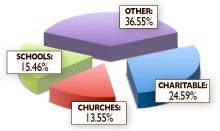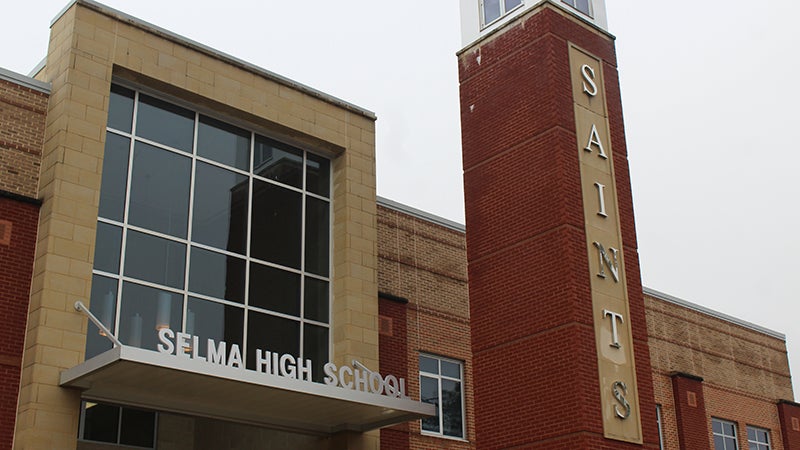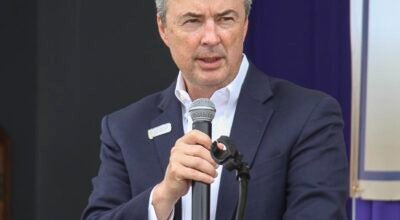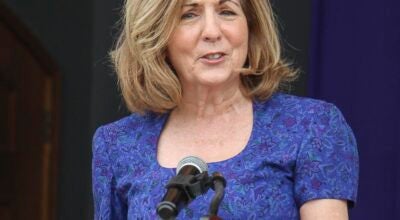Donations to charities at top of council spending
Published 5:37 pm Saturday, May 17, 2014
Editor’s note: This story is the second in a series analyzing the Selma City Council and mayor’s travel, oil lease and discretionary funding.
Every year, the Selma City Council funnels thousands of dollars into area charities and religious organizations through its discretionary fund.
Charitable organizations also represent the greatest in number of donations and the second largest in total amount of money, according to current fiscal year documents ending Feb 28.
Each of the nine council members receive an identical amount — $7,500 — at the beginning of each fiscal year. Council members have different spending habits, but charities outpace most other funding destinations, according to city documents. Through February, charitable organizations received a total of $7,750 from the council’s discretionary fund, according to city documents.

Donations to charitable organizations is the single largest category of spending from the Selma City Council’s discretionary spending through Feb. 28, 2014.
Councilmembers expressed mixed emotions about the way discretionary money is currently used. Council President Corey Bowie, who was second in amount of money given to charitable organizations, expressed support for the council’s ability to support charities.
“Some of the charitable work that’s being done is meaningful in the community,” Bowie said. “I don’t mind donating to them.”
Some were in opposition to using discretionary money as a funding mechanism for charities. Ward 1 Councilman Cecil Williamson said the practice of donating to churches and charitable organizations creates a dependency on city government for funding.
“I think that churches and organizations should be supported by their own members,” Williamson said. “I think the best use would be directed toward programs that are community wide.”
Williamson donated $1,700 to charitable organizations, which represented the most of any council member. In total, he used $4,220 of his discretionary money by Feb. 28. Williamson’s largest donation was for $800 to the Selma Elks Lodge to help pay for scholarships.
Council members most commonly donate to charities during work sessions. At the start of each work session, Selma and Dallas County residents are allotted three to five minutes to comment on any topic. Many different organizations use the time to ask for discretionary money.
Following the public comment portion, the council writes monetary amounts on a form for discretionary donations. Many charities appear on multiple council members’ discretionary reports, but amounts vary widely.
The Selma and Blackbelt Regional Abuse Sanctuary (SABRA) received $950 from the council in October 2013. SABRA director Nancy Travis said she approached the council about giving donations as a part of the organization’s annual fundraiser. The council’s discretionary donation was used for the general operation of Sabra’s programs, Travis said.
Four other categories were used to analyze the council’s discretionary expenses. Other categories included: religious organizations, schools, ward-specific projects and miscellaneous expenses.
Ward 6 Councilman B.L. Tucker spent the largest amount of any council member in the religious organizations category.
Ward 4 Councilwoman Angela Benjamin was the council’s biggest spender in the schools category. Her biggest individual expense was to Cedar Park Elementary School on Nov. 26 for $500.
Only three councilmen — Tucker, Ward 3 Councilman Greg Bjelke and Benjamin — spent discretionary money on ward-specific projects.
Tucker paid slightly more than $1,500 on ward-specific projects. The largest was $465 for stump grinding in Tucker’s ward.
Bjelke’s discretionary reports show one ward-specific expense — $2,300 — for tree trimming in Ward 3.
Bjelke said he paid the amount because city crews were moving slowly.
“We can’t use oil lease money for tree work and it needed to be done,” Bjelke said. “I think discretionary money should be used for very important things in my ward.”
Benjamin spent just over $200 for a Ward 4 End of Year Celebration.
Miscellaneous expenses include a wide range of donations, from the St. James Hotel to paying for student workers during winter break.
Ward 5 Councilman Sam Randolph had the greatest amount — $3,890.14 — of any council member in the miscellaneous category. Randolph’s greatest miscellaneous expense was $739.50 to F & E Sportswear for Smoke Out the Violence Rally T-shirts, he said.
Several non-religious and non-charitable organizations are also listed on Randolph’s discretionary report, including the Rangedale Resident Council. Randolph said he donated because the Rangedale council provides important services to the community.
“They have after-school programs for the kids and help out with senior citizen activities,” Randolph said.
The Rangedale council is a part of the Selma Housing Authority.
City documents do not include the entirety of councilman Michael Johnson’s discretionary expenses. The city provided two pages of Johnson’s total five-page finance report. The provided report for Johnson ends Oct 8, 2013.
Johnson was unsure of the exact breakdown of his expenses, but said his discretionary report should include ward-specific projects and donations to charitable organizations.
“I know that a lot of these organizations need funds,” Johnson said. “Really, the city doesn’t have a lot to give. I just try to give back to the community as best I can with the money we get.”
Recently, Randolph proposed raising the council’s discretionary funding from $7,500. The council’s current discretionary funding was reduced from $15,000 to $7,500 around 2009, he said.
Other council members have proposed combining the council’s travel funding with discretionary. With several proposals on the table, Bowie said the city council would consider its discretionary funding formula in budget discussions for the 2015 fiscal year.
“The council has thrown out some suggestions,” he said. “We will just take them into consideration for the upcoming budget.”





